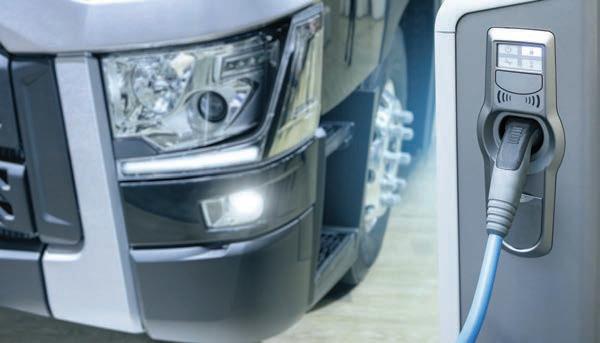
2 minute read
ATA President Testifies Before House Transportation Committee
ATA President and CEO Chris Spear testified before the House Transportation & Infrastructure Committee at a hearing titled, “The State of Transportation Infrastructure and Supply Chain Challenges.”
Spear highlighted the need to fully implement the 2021 bipartisan infrastructure law, the importance of reducing congestion and addressing concerns at supply chain bottlenecks including ports, the need to recruit and train the next generation of truck drivers, and the regulatory challenges that trucking is facing from overly ambitious and unachievable environmental goals.
While Congress will struggle to legislate this year due to divided partisan control of the House and Senate, the hearing laid down an important marker that supply chains will remain an important subject for Members over the next two years. ATA will work with these Member offices to advance key legislative priorities including the Truck Parking Safety Improvement Act, repeal of the federal excise tax on heavyduty vehicles, and reforming credentialing programs at DOT and TSA.
Congestion
Spear talked about the $1.2 trillion 2021 Infrastructure Investment and Jobs Act (IIJA), also known as the Bipartisan Infrastructure Law (BIL), noting that even though the trucking industry makes up just 4% of vehicles on the nation’s roads, it “pays nearly half the tab into the Highway Trust Fund.” He urged the committee to make sure “every dollar be spent wisely.”
Truck parking
Spear also mentioned truck parking in his opening remarks, noting that trucking needs “new, secure truck parking capacity as proposed by bipartisan Truck Parking Safety Improvement Act.”
“Getting [truck drivers] safe, secure, well-lit parking is a no-brainer,” he said.
Driver shortage
Last summer, the Federal Motor Carrier Safety Administration opened the Safe Driver Apprenticeship Pilot Program to begin the process of getting those young drivers into trucking, but Spear said the agency went too far, in part, by requiring driver-facing cameras.
“What the IIJA didn’t do is require inward-facing cameras, opposed by drivers young and old, union and non-union. Requiring a company camera be in a driver’s workspace every minute of every hour, including the sleeper berth, is intrusive, disrespectful, it opens a prying door into the other transportation modes. Your oversight is warranted.”
Spear added that the inclusion of the driver-facing camera provision will “Limit companies from joining this program and putting young talent in a capacity where they can replace our aging workforce.”
Ab 5
Rep. Scott Perry (R-Pennsylvania) asked Spear about California’s AB 5 independent contractor classification law and the impacts it is having on trucking in the state.
“Giving people the right to choose” the path they want to take in trucking “is what is in question here,” Spear said. “Stop talking to the media and start talking to independent contractors. They’ll tell you why they chose this path. Whatever the reason may be, that’s their decision, their choice.”
He added that in most cases, drivers aren’t forced into being independent contractors by an employer looking to avoid paying benefits or other scenarios. “I’m not saying there isn’t abuse, but to reform entire state law or national law based on an anecdote ... just talk to the ICs. They’ll tell you this is a wonderful profession, a business they want to grow. They want to add trucks and drivers underneath them serving other companies. Give them that option, don’t take it away.”
With respect to the driver shortage, he told the committee that putting up barriers to independent contractor relationships will only make that problem worse and will drive up the costs of everyday goods even more.
Electrification
Another topic Spear focused on was the nation’s push toward electric, or zero-emission, vehicles. He noted there needs to be “realistic discussion” about energy and environmental policies in the U.S., adding that it’s “not a matter of if we get to zero, but when. And we will get there, just not on the timelines being proposed in California.”
He added that the state’s “rush to zero makes their timeline and targets unachievable, and they will fail.”
Spear cited a recent American Transportation Research Institute report that found that, despite only accounting for 4% of vehicles on the road, trucking would consume 40% of all power currently generated to charge the full fleet of trucks in the U.S.







